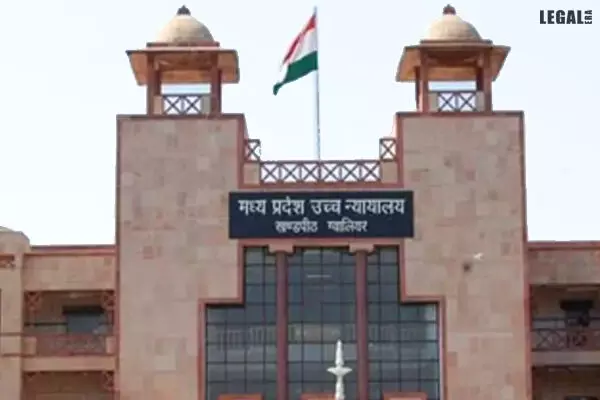- Home
- News
- Articles+
- Aerospace
- Agriculture
- Alternate Dispute Resolution
- Banking and Finance
- Bankruptcy
- Book Review
- Bribery & Corruption
- Commercial Litigation
- Competition Law
- Conference Reports
- Consumer Products
- Contract
- Corporate Governance
- Corporate Law
- Covid-19
- Cryptocurrency
- Cybersecurity
- Data Protection
- Defence
- Digital Economy
- E-commerce
- Employment Law
- Energy and Natural Resources
- Entertainment and Sports Law
- Environmental Law
- FDI
- Food and Beverage
- Health Care
- IBC Diaries
- Insurance Law
- Intellectual Property
- International Law
- Know the Law
- Labour Laws
- Litigation
- Litigation Funding
- Manufacturing
- Mergers & Acquisitions
- NFTs
- Privacy
- Private Equity
- Project Finance
- Real Estate
- Risk and Compliance
- Technology Media and Telecom
- Tributes
- Zoom In
- Take On Board
- In Focus
- Law & Policy and Regulation
- IP & Tech Era
- Viewpoint
- Arbitration & Mediation
- Tax
- Student Corner
- AI
- ESG
- Gaming
- Inclusion & Diversity
- Law Firms
- In-House
- Rankings
- E-Magazine
- Legal Era TV
- Events
- News
- Articles
- Aerospace
- Agriculture
- Alternate Dispute Resolution
- Banking and Finance
- Bankruptcy
- Book Review
- Bribery & Corruption
- Commercial Litigation
- Competition Law
- Conference Reports
- Consumer Products
- Contract
- Corporate Governance
- Corporate Law
- Covid-19
- Cryptocurrency
- Cybersecurity
- Data Protection
- Defence
- Digital Economy
- E-commerce
- Employment Law
- Energy and Natural Resources
- Entertainment and Sports Law
- Environmental Law
- FDI
- Food and Beverage
- Health Care
- IBC Diaries
- Insurance Law
- Intellectual Property
- International Law
- Know the Law
- Labour Laws
- Litigation
- Litigation Funding
- Manufacturing
- Mergers & Acquisitions
- NFTs
- Privacy
- Private Equity
- Project Finance
- Real Estate
- Risk and Compliance
- Technology Media and Telecom
- Tributes
- Zoom In
- Take On Board
- In Focus
- Law & Policy and Regulation
- IP & Tech Era
- Viewpoint
- Arbitration & Mediation
- Tax
- Student Corner
- AI
- ESG
- Gaming
- Inclusion & Diversity
- Law Firms
- In-House
- Rankings
- E-Magazine
- Legal Era TV
- Events
Madhya Pradesh High Court: Alternative Remedy under Section 246 of Income Tax Act is Not Absolute Bar to Examine Conditions to Issue Reassessment Notice

Madhya Pradesh High Court: Alternative Remedy under Section 246 of Income Tax Act is Not Absolute Bar to Examine Conditions to Issue Reassessment Notice
The Madhya Pradesh High Court observed that, the alternative remedy under Section 246 of the Income Tax Act, 1961 does not operates as an absolute bar for entertaining the writ petition.
The petitioners/assessees- M/S Space Enclave Private Limited Through Its Director Shri Rajeev Shrivastava assailed the order passed under Section 148A(d) of the Income Tax Act, 1961 (the Act) as well as the notice issued under Section 148 of the Act for initiating reassessment proceedings for the 2013–14 assessment year.
The learned counsel for Revenue raised a preliminary objection with regard to maintainability of the writ petition in view of the alternative remedy available under Section 246 of the Act of filing an appeal.
The issue raised was whether under what circumstances a challenge can be entertained to an order passed under Section 148A(d), as it stood amended.
The division bench of Justices S.A. Dharmadhikari and Prakash Chandra Gupta held, “Since the jurisdictional issue has been raised before this Court, even assuming an alternative remedy u/S 246 of the Act of filing an appeal is available, it will not operate as an absolute bar for entertaining the writ petition as jurisdictional issues goes to the root of matter and it is one of the exceptional factors carved out by the Hon'ble Supreme Court for exercise of jurisdiction under Article 226 of the Constitution of India.”
The Court referred a decision passed by the Allahbad High Court in the case of Rajeev Bansal Vs. Union of India & Others as well as the Gujarat High Court in the case of Keenara Industries Pvt. Ltd Vs. Income Tax Officer had entertained the writ petitions where alternative remedy was available.
Further reference was placed by the Court in the case passed by the Calcutta High Court Aashiyana in Housing Ltd. Vs. Union of India wherein it held that the alternative remedy will not operate as an absolute bar for entertaining the writ petition as jurisdictional issue goes to the root of the matter. Therefore, we are of the view that appellant has made out a case for entertaining this appeal and had also stayed the further re-assessment proceedings.
The bench further relied on the decision of the Supreme Court in the case of Red Chilli International Sales Vs. Income Tax Officer and Anr., in which it was held that writ petition have been entertained to examine whether the conditions for the issuance of a notice under Section 148 of the Income Tax Act have been satisfied. The provisions of reopening under the Income Tax Act, 1961, have undergone an amendment by the Finance Act, 2021, and consequently, the matter would require a deeper and more in-depth consideration keeping in mind the earlier case law.
The Court accordingly, admitted the batch of writ petitions for final hearing and in the meanwhile, imposed an interim stay of the order passed under Section 148A(d) of the Act as well as consequential notice under Section 148 of the Act, until further orders.



